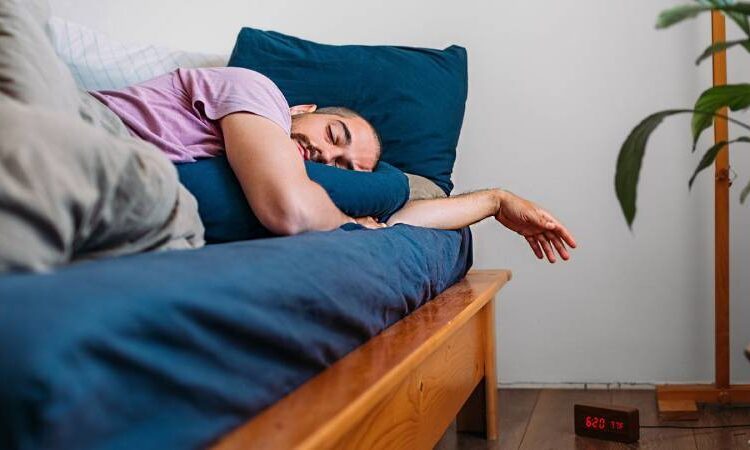This insidious condition involves the recurrent interruption and resumption of breathing during sleep, resulting in a depletion of essential oxygen and numerous involuntary awakenings, often disrupting the quality of rest. Its most prevalent form, known as obstructive sleep apnea, arises when the muscles supporting the throat and nasal passages relax excessively, leading to a complete blockage of the airway.
Sleeping on one’s back increases the likelihood of this condition, and obesity plays a significant role, as excess fat deposits around the upper airways contribute to the problem. Smoking exacerbates the issue by causing inflammation in the affected tissues.
Detecting sleep apnea can be challenging without the presence of a sleep partner. Frequent and loud snoring frequently accompanies the disorder, while nighttime gasping for air serves as a more unmistakable indicator. If you regularly wake up with a dry mouth, experience morning headaches, struggle to maintain sleep, or battle extreme daytime drowsiness, you may be suffering from sleep apnea.
Regrettably, the majority of sleep apnea cases remain untreated, with sufferers often resorting to caffeine or daytime naps to combat their fatigue. However, allowing this disorder to persist during the night can have dire consequences for one’s health. It is important to remember that individuals with sleep apnea are chronically deprived of oxygen while they rest, resulting in detrimental effects during their waking hours.
Jonathan Jun, the director of the Johns Hopkins Sleep Disorders Center, emphasized the daytime risks, including car accidents, reduced workplace productivity, mood swings, grogginess upon awakening, and even falling asleep in various situations.
The lack of oxygen adversely affects the brain over extended periods, but its impact on the heart is even more insidious. The heart must work harder to pump blood to the lungs, leading to an increase in its size and a decrease in efficiency, ultimately causing high blood pressure. Consequently, individuals with severe sleep apnea, waking up more than 30 times per hour, face a three to fourfold greater risk of death from any cause, potentially shortening their lifespan by up to a decade. Those with moderate sleep apnea, waking up between 15 and 30 times per hour, are 72% more likely to die, primarily due to elevated rates of heart attacks and strokes.
Timothy Morgenthaler, a professor of medicine at the Mayo Clinic specializing in sleep and pulmonary medicine, expressed concern about the worsening problem of obstructive sleep apnea, which is closely associated with the rising rates of obesity.
Fortunately, there are simple, life-extending treatments available. Lifestyle changes such as weight loss, dietary adjustments, regular exercise, side-sleeping, and abstaining from smoking and alcohol can reduce the severity of obstructive sleep apnea or even resolve it in some cases. A highly effective treatment option is the continuous positive airway pressure (CPAP) machine. This device, worn with a mask over the nose and sometimes the mouth, delivers humidified air to maintain an open airway during sleep, preventing breathing interruptions.
Regrettably, some patients hesitate to use a CPAP machine, despite its relative affordability and substantial benefits. This device can restore restful sleep, significantly reduce or eliminate the elevated risk of mortality associated with sleep apnea, and has no side effects apart from the initial discomfort of wearing a mask while sleeping. It provides immediate results and can be discontinued at any time, making it a rare and straightforward solution to a serious health issue in the realm of modern medicine.
Disclaimer: The views, suggestions, and opinions expressed here are the sole responsibility of the experts. No Euro Tidings journalist was involved in the writing and production of this article.




